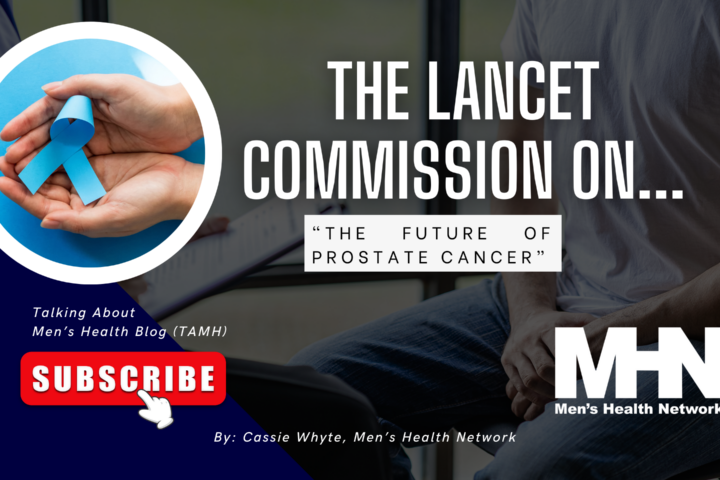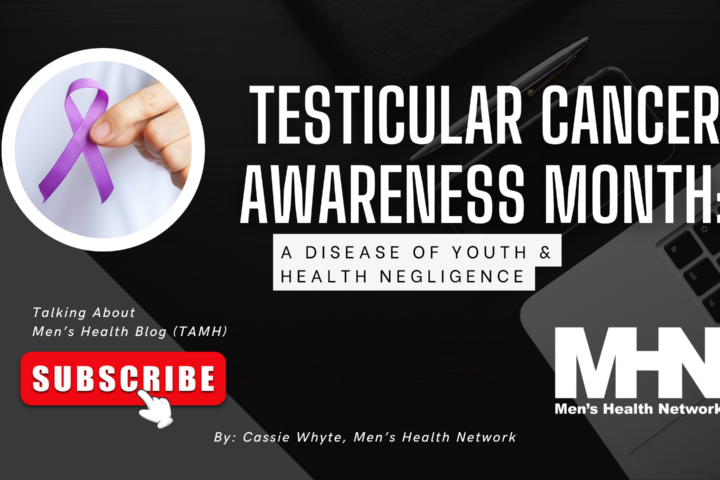We, as a species, seem to spend a great deal of time blaming others for our problems and nowhere is this truer than when referring to health. Whether it is patients blaming doctors, doctors blaming government, government blaming insurance companies, the finger is always pointed at someone else. This is something that needs to change. Refreshingly, we’ve heard a lot from our current president about personal responsibility, especially regarding men taking responsibility for their families, children, and their health. Well in honor of President Obama and our new Era of Responsibility I have something that will help you to do all three at once.
There has been a lot in the news recently about the human papillomavirus or HPV. Maybe you’ve heard that it has no effect in men and that it’s only a disease that has consequences in women. The first problem with that line of thinking is that it’s just flat out wrong. HPV is currently one of the most widespread viral diseases, with research from the Guttmacher Institute estimating there are 5.5 million new cases per year, that the virus accounts for one-third of all new STD infections, and that almost 75% of people between the ages of 15 and 49 have contracted the disease at some point. According to the CDC, there are in fact over 40 strains of sexually transmissible HPV (more than 100 altogether), many of which can cause a number of serious health problems in men, including genital warts and penile and anal cancers. Those are frightening statistics. However, it is indeed true that existing research has shown that for the vast majority of men, infection with the HPV virus shows no signs or symptoms and will most likely carry no direct consequences. Genital warts are rare, with only 1% of American men infected and penile and anal cancers only affecting 1 in every 100,000 men. So that is good news, right? Nothing to worry about? Wrong.
The second issue with the not-my-problem approach to HPV is of course that as any man who has ever been in a serious relationship knows, regardless of what your woman’s crisis is, it ultimately becomes your problem as well. Remember, as 21st Century men we are more knowledgeable, concerned, worldly, and with a greater emotional range than our fathers and grandfathers. This is important because while it might be of little personal consequence, HPV has tremendous effects on the health and well-being of our wives, mothers, girlfriends, sisters, and daughters. Left untreated, chronic HPV infection has shown to have an indisputable link to the development of cervical cancer in women. Just in the United States alone, the American Cancer Society estimates that each year over 12,000 cases will be reported and more than 4,000 women will die due to cervical cancer. As the U.S. is a diverse nation and to avoid ethnocentrism it is equally as important to note that the number skyrockets when you look outside the U.S. Globally, cervical is the 3rd most common cancer and will strike nearly half a million women and kill almost a quarter of a million. The Guttmacher Institute found that 80-85% of these deaths occur in developing nations and most often in Sub-Saharan Africa, South Asia, and Latin America.
So this is the point where you may be a little confused. There is no test for you to determine whether or not you have HPV and even if you knew your infection status, the vaccine is not approved for your use. Additionally, the only surefire way to avoid spreading the virus is to not have sex, so how can you help? Given the rates of infection mentioned previously, the best step you can take is to simply take responsibility for the fact that you most likely are infected (and if you’ve ever had a cold-sore you definitely are). Encourage the women in your life to get routine Pap screenings if she is under 30 years old and the HPV test also if she is 30 or older. The worst crime is that, for women, detection of HPV infection is reliable, cheap, simple, and effective (90%) in identifying warning signs of early-stage cervical cancer and cervical dysplasia (precancerous cervical cells). These screenings, known as Pap tests have been responsible for a 74% reduction in cervical cancer deaths. Beyond that it should be obvious for enlightened Era-of-Responsibility-Man; limit your sexual partners and choose those who do so as well, avoid sexual contact if you do have visible warts, and for goodness sakes wear a condom. While it is not as effective against HPV as it is against other STDs, it still works and honestly if you’re still not using a condom, there’s little hope for your joining those of us in the 21st Century. Feel free to ward off HPV through grunting, pounding your chest, and throwing your excrement. Let us know how it works.
“What is required of us now is a new era of responsibility – a recognition, on the part of every American, that we have duties to ourselves, our nation, and the world…”
– President Barack Obama
The Guttmacher Report on Public Policy
August 2003, Volume 6, Number 3. https://www.guttmacher.org/pubs/tgr/06/3/gr060304.html
HPV and Men: CDC Fact Sheet. 2009. https://www.cdc.gov/STD/HPV/HPV&Men-Fact-Sheet.pdf
The digene HPV test: FAQs for Men. 2009. https://www.thehpvtest.com/About-HPV/FAQs-for-Men.html




I’m not sure I agree with the characterization that in regard to HPV that women “have a problem” and men are “disease reservoirs.” After all, every single hetrosexual man who has HPV today got it originally from a woman, right? So how come it’s only men who are “disease reservoirs”?
It is women, who can get tested to learn if they have HPV or not, and women who can get vaccinated to prevent ever getting it at all. Men can do neither of those things. So why does this article tell us that men are the problem with their “it’s not my problem” attitude.
Men can and do get HPV, and when that happens, it raises their rates for specific types of cancers- see below excerpted from Terra.com:
“Human papillomavirus, or HPV, is the leading cause of cervical cancer in women. It also can cause genital warts, penile and anal cancer — risks for males that generally don’t get the same attention as cervical cancer.
Previous research by Gillison and others established HPV as a primary cause of the estimated 5,600 cancers that occur each year in the tonsils, lower tongue and upper throat. It’s also been known that the virus’ role in such cancers has been rising.
The new study looked at more than 30 years of National Cancer Institute data on oral cancers. Researchers categorized about 46,000 cases, using a formula to divide them into those caused by HPV and those not connected to the virus.
They concluded the incidence rates for HPV-related oral cancers rose steadily in men from 1973 to 2004, becoming about as common as those from tobacco and alcohol.”
So we can see that men are not merely “disease reservoirs” but are victims of this disease also. I think that our efforts would be beter directed to ensuring that a vaccine is developed for men (which would benefit men and women both) or that the existing vaccine be tested to see if it is effective for men as well. Until both men and women have a means of prevention, then the public health risks and consequences of HPV will not be abated.
i am now more careful about having unprotected sex because my bestfriend got infected with HPV last year. it was a horrible and painful experience for her.
I like Mr. Barnett’s approach as well as Mr. Manley’s. I’m pleased to see the conversation being had among men. HPV is distressing in women and the possibility of cervical cancer, and of never being able to have a child as a result of HPV treatments tops the list of our worries. I would propose that primary care doctors treat HPV in men with as much attention as women receive. It would be helpful in treatment to know the males type of HPV…so bipsy could prove useful in treatment in woman partners.Topical meds like Aldara; or freezing . these are great teaching moments for patients to have with their doctors. The vaccine has been approve for use in boys.